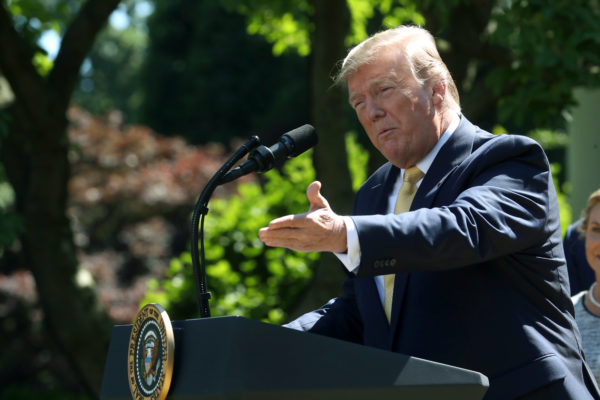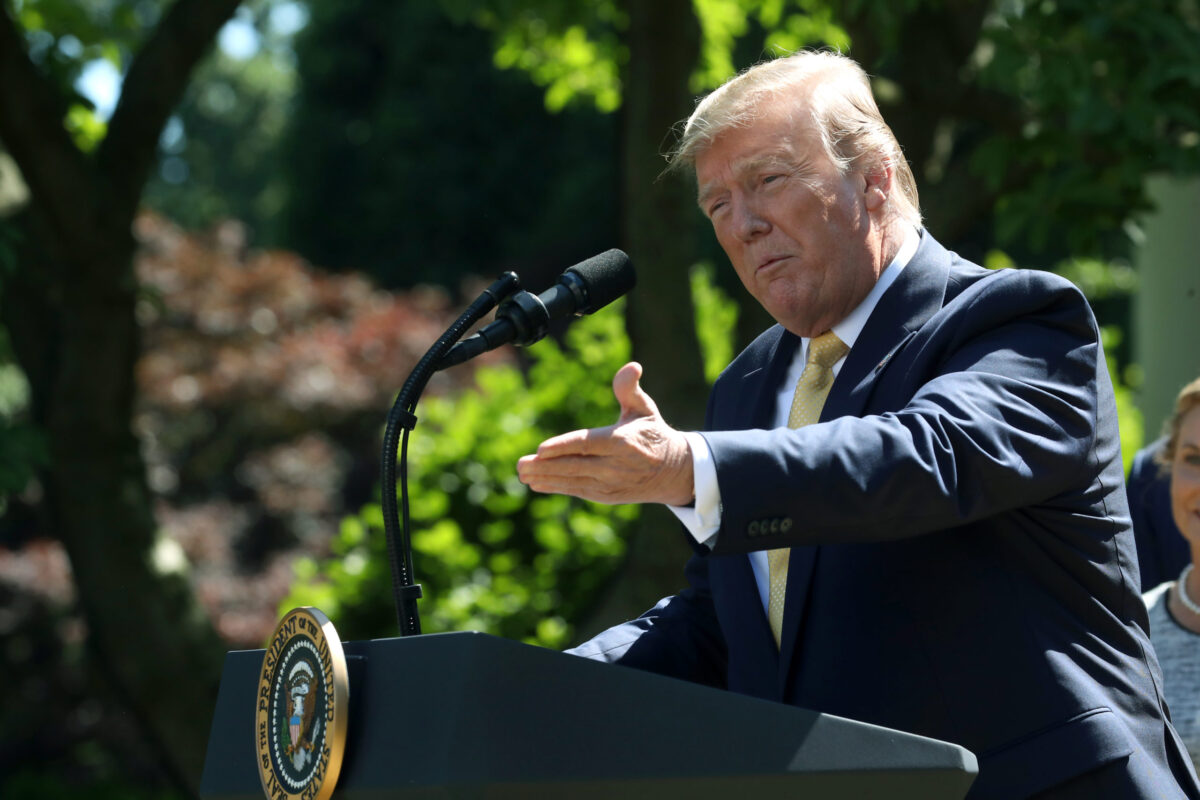Judge Shuts Down Trump’s Attempt to Dismiss Central Park Five Lawsuit, Says His ‘Demonstrably False’ Claims Could Show ‘Actual Malice’ and Suggests He Knew They Were Lies
A federal judge has denied Donald Trump‘s bid to dismiss a defamation lawsuit brought against him by the “Central Park Five,” the five men wrongly convicted in the 1989 jogger rape case in New York City.
The civil suit was filed following comments made by Trump during the presidential debate last September. He asserted that the men had killed a person and pleaded guilty, remarks that U.S. District Court Judge Wendy Beetlestone found could be “objectively determined” to be false.

The five men, teenagers when the Central Park attack occurred, were found guilty at trial following a very public prosecution that galvanized New Yorkers fed up with crime. Trump fed this thirst for revenge, spending $85,000 on full-page ads in the local newspapers headlined: “BRING BACK THE DEATH PENALTY. BRING BACK OUR POLICE!”
In an open letter, which was published two weeks after the attack on the jogger, Trump lamented how New York families “have had to give up the pleasure of a leisurely stroll in the Park at Dusk” because of “roving thousands of wild criminals.”
He argued that politicians were so fixated on preventing police brutality that they essentially handcuffed the “neighborhood cop,” creating a “reckless and dangerously permissive atmosphere which allows criminals of every age to beat and rape a helpless woman.” He said “these muggers and murderers…should be forced to suffer and, when they kill, they should be executed for their crimes.”
Michael Warren, a member of the Central Park Five legal team, contended that Trump’s ads “poisoned the minds of many people who lived in New York and who, rightfully, had a natural affinity for the victim.”
Democratic nominee Kamala Harris referenced the ad in her debate with Trump — “the same individual who took out a full-page ad in The New York Times calling for the execution of five young Black and Latino boys who were innocent, the Central Park Five.”
Trump responded that “a lot of people, including Mayor Bloomberg, agreed with me on the Central Park Five.”
Here’s the quote that triggered the lawsuit:
“They admitted—they said, they pled guilty. And I said, well, if they pled guilty they badly hurt a person, killed a person ultimately,” Trump said. “And if they pled guilty—then they pled we’re not guilty. But this is a person that has to stretch back years, 40, 50 years ago because there’s nothing now.”
At their trial, four of the five defendants who had given video confessions testified they had been coerced. All maintained their innocence.
But jurors weren’t convinced and found Antron McCray, Kevin Richardson, Yusef Salaam, Raymond Santana and Kharey Wise guilty.
They would end up serving anywhere from 6 to 13 years in prison through December 2002. That’s when, in a shocking turn of events, the Manhattan District Attorney recommended overturning their convictions after Matias Reyes, a serial rapist and murderer already in prison, confessed to sexually assaulting the jogger. His DNA matched DNA found on the victim’s body.
But even then, some questioned their exoneration, including the now-president.
As late as 2013, Trump was still claiming the five were violent criminals. He shared those allegations in a tweet lambasting the 2012 documentary “The Central Park Five,” produced by Ken Burns and his daughter Sarah Burns. The film “didn’t explain the horrific crimes of these young men while in the park.” Trump fumed.
One year after that tweet, the CPF reached a settlement with the city of New York totaling $41 million. Each man received approximately $1 million for each year they were wrongfully incarcerated.
Trump was offended by the settlement, asking in a 2014 New York Daily News op-ed, “What about the other people who were brutalized that night, in addition to the jogger?…These young men do not exactly have the pasts of angels.”
Beetlestone said the men had raised a plausible claim that Trump spoke with “actual malice,” a legal designation that someone made a statement they knew to be false. He can’t plead ignorance as Trump’s lawyer noted during the hearing that the president was “closely familiar with plaintiffs’ not-guilty plea, conviction, and subsequent exoneration, such that he knows that plaintiffs did not plead guilty or hurt anyone.”
Which leads to the question: If he knows the plaintiffs are innocent, why can’t he just say it?
Discussing the case during the 2016 campaign, Trump told CNN, “They admitted they were guilty,” the then-candidate said in a CNN interview one month before the election. “The police doing the original investigation say they were guilty. The fact that that case was settled with so much evidence against them is outrageous. And the woman, so badly injured, will never be the same.”
Trump’s attorneys had sought dismissal on several grounds. They argued that his comments should fall under Pennsylvania’s “anti-SLAPP” law that protects people from lawsuits over constitutionally protected speech.
Trump was discussing matters of “public concern” and explaining why he’d placed a newspaper ad shortly after the attack that called for a revival of the death penalty based on his opinion about the information available at the time, they said.
As for the specific statements about the victim being killed and the defendants pleading guilty, the president’s legal team argued those comments were “substantially true” because he was referring to confessions during the initial investigation and the victim’s severe injuries.
Lawyers for the men countered that there was no ambiguity, as Trump claimed, and that “whether someone ‘pled guilty’ to having ‘killed someone’ is a factual statement that can be proven true or false.”

